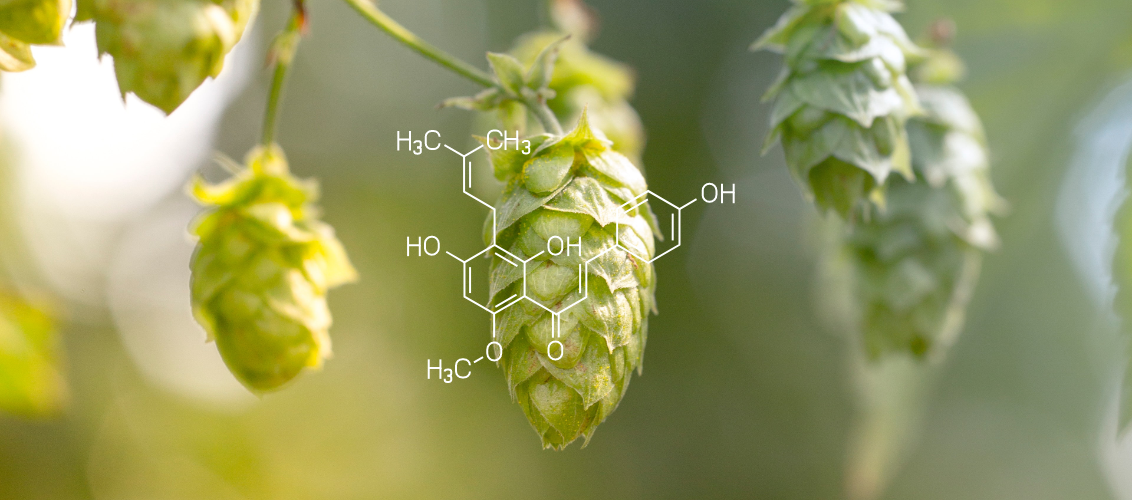
Benefits of Hops Super-Plant
What are Hops?
Hops (Humulus lupulus) are flowering plants known as strobiles or seed cones that belong to the Cannabaceae family. They produce fruity, floral, or citrus flavors and aromas. Hops are herbaceous, perennial, and climbing plants that usually grow up strings in a hop field in the South of England or hop yard in the West Country and the United States when planted commercially. Hops exist as separate male and female plants. The female hops plants are beneficial for many purposes, such as herbal medicine and medicinal herbs.
Uses of Hops
1. Hops are used as flavoring agents in many beverage industries.
2. Hops are used in the production of tea.
3. Hops are used to produce pillows for conformability in sleep.
4. Soft hop yeast extracts are used for making bread.
5. Hops are used for producing skincare and cleaning agents such as soaps.
6. Hops are used for preparing savory meals such as sauce, salads, stews etc.
7. Hops flowers are used as beautification in the home or outdoors; are also used as wall or fence coverings.
Traditional uses of Hops
Hops are used traditionally to treat sleeping disorders, relieve toothaches, and aid digestion. Likewise, it is used to produce pillows as a remedy for sleeplessness. Hops are also used to treat women with menopausal symptoms such as osteoporosis and hot flashes because of their phytoestrogen content.
Surprising facts about Hops
Hops are climbing plants that grow little tendrils like arms that hold onto things.
Hops twist around stakes in a clockwise direction. Even if they are tampered with, they will always unwind and go back in the clockwise direction.
Hops exist as separate male and female plants, which can be distinguished through their flowers. Female hops produce hop cones used in beer.
Hops have over 75 varieties in the world.
Hops are used for flavor and bittering in brewing industries.
Hops are also used as a preservative in beverages.
Health benefits of hops and why myAir bars contain it
1. Hops can help treat sleeping disorders
Early physicians found that hops pickers got tired quickly during the harvest of the hops and assumed that the sticky resin that spilled on their skin from the cut plant caused this effect. In recent years, some scientists confirmed that hops contain lupuline and humulene which possess mild sedative properties applied in medicine.
A few small studies have been carried out on the effects of hops on sleep-wake cycles using non-alcoholic beer. In 2012, a study of female nurses on working rotation or night shifts were given alcohol-free beer with dinner for two weeks. The researchers monitored the nurses' sleep patterns with a wristband sleep tracker. They discovered that the beer did not only aid them to sleep 8 minutes faster than usual but also reduced anxiety levels.
In 2014, there was a study of 30 college students for 3 weeks. The study used sleep-quality index questionnaires to determine the students' sleeping habits. After a week, the students were made to consume non-alcoholic beer with supper for the next two weeks. The researchers recorded a significant improvement in the sleep scores of the students and the time it took to fall asleep.
In 2012, a review of studies from Australia found that pairing hops with valerian may help to treat sleeplessness. Out of a review of 16 studies, 12 found that the combination of hops and valerian boosted sleep quality and reduced the time it took to fall asleep. In some cases, there was an increase of about two and a half hours of extra sleep per night and a 50% decrease in the number of nighttime awakenings. These effects may benefit people with work shifts and may even prove helpful in treating mild anxiety.
Furthermore, when hops combined with passionflower and valerian can be an effective alternative to sleep medicine prescription. A 2013 study also compared the sleeping pill Ambien (zolpidem) to a herbal combination of hops, passionflower, and valerian, and they were found to be also adequate.
In combination with some other herbs such as valerian and passionflower, Hops can help treat sleeping disorders.
2. Hops can help to treat cardiovascular disease
Atherosclerosis (the hardening of the arteries) is a condition wherein plaques accumulate in the artery, leading to stroke or a heart attack. However, the presence of xanthohumol in hops is believed to contain anti-restenotic properties that can help to relax the blood vessels and improve blood circulation in the body.
A 2012 study on mice in Japan found that mice that consumed a hops xanthohumol extract had a significant decrease in risk of atherosclerosis and an increase in "good" high-density lipoprotein (HDL) cholesterol. There was an increase in a type of HDL rich in apolipoprotein E, a protein central to fat metabolism and prevention of cardiovascular disease. According to research from Oregon State University, hops extract can promote weight loss, lower blood pressure, reduce abdominal fat and increase insulin sensitivity.
Hops possess some anti-restenotic properties that can help to treat cardiovascular disease.
3. Hops can help to suppress depression
Hops have been studied and found to be a potential treatment for depression and other mood disorders.
In 2017, a study published in the journal Hormones found that daily consumption of hops supplement can reduce depression, anxiety, and stress.
In a placebo-controlled clinical trial, 36 young adults with mild depression were given either placebo for 4 weeks or 400 mg of melcalin hops. At the end of the study, those taking hops showed significant reductions in stress, anxiety, and depression compared to the placebo group. In conclusion, some supplement manufacturers and herbalists claim that including hops in a diet can help to boost overall health and prevent certain diseases.
Adding hops to your diet is beneficial to one’ss health. Hops extracts can help to suppress anxiety, stress, and depression.
4. Hops can enhance a better mood
Hops can aid to brighten up one’s mood by improving the neuroendocrine response of the Central Nervous System through the interactivity with GABA receptors, serotonin, and melatonin. A recent study of some healthy young adults shows that mild depression, stress, and anxiety were improved after models consumed hops supplement for 4 weeks daily.
According to integrative gastroenterologist Marvin Singh, M.D. Functional medicine doctor Amy Shah, M.D. credits hops' ability to boot mood so that it interacts with the body's melatonin and serotonin receptors.
Hops can promote a better mood and are often used to treat depressive symptoms, nervous tension, and anxiety.
5. Hops can prevent hot flashes
Hops contain flavonoid 8-prenylnaringenin, which is classified as a phytoestrogen (a plant-based compound that mimics the activity of the female hormone estrogen). Some people believe that 8-prenylnaringenin can aid estrogenic activity in the body. Consequently, overcoming symptoms of hypoestrogenism (estrogen deficiency).
Hops can help to alleviate night sweats and hot flashes related to menopause. In 2010, a study of menopausal women in Finland for eight weeks using hops extract showed that the women experienced a reduction of night sweats, hot flashes, and even low libido compared to those given placebo. Moreover, the hop extract worked without having any adverse effects of traditional hormone replacement therapy (HRT) such as headaches, bloating, indigestion, and leg cramps.
Hops can prevent hot flashes and night sweats related to menopausal symptoms.
8. Hops can enhance immune health
Hops contain a flavonoid compound called xanthohumol. The xanthohumol has antiviral, anti-inflammatory, and anti-clotting properties. A review of existing medical data states that the combination in hops may help ward off some disease processes, including those related to metabolic syndrome.
Hops contain several properties that promote immune system health.
Conclusion
Hops are embedded with some properties which make them beneficial to man's health. Hops can help to treat a lot of health issues. However, researchers are still on to determine the full potency of the flowering plant. Good news - myAir bars are packed with Hops!
Footnote
Xanthohumol Prevents Atherosclerosis by Reducing Arterial Cholesterol Content via CETP and Apolipoprotein E in CETP-Transgenic Mice
Hiroshi Hirata, Yimin, Shuichi Segawa, Moeko Ozaki, Naoyuki Kobayashi, Tatsuro Shigyo, Hitoshi Chiba
https://journals.plos.org/plosone/article?id=10.1371/journal.pone.0049415
Efficacy and safety of a polyherbal sedative-hypnotic formulation NSF-3 in primary insomnia in comparison to zolpidem: A randomized controlled trial.
Non-estrogenic Xanthohumol Derivatives Mitigate Insulin Resistance and Cognitive Impairment in High-Fat Diet-induced Obese Mice
Cristobal L. Miranda, Lance A. Johnson, […]Jan F. Stevens
https://www.nature.com/articles/s41598-017-18992-6
The Multiple Biological Targets of Hops and Bioactive Compounds
Judy L. Bolton*, Tareisha L. Dunlap, Atieh Hajirahimkhan, Obinna Mbachu, Shao-Nong Chen, Luke Chadwick, Dejan Nikolic, Richard B. van Breemen, Guido F. Pauli, and Birgit M. Dietz
https://pubs.acs.org/doi/10.1021/acs.chemrestox.8b00345
Effects of hops (Humulus lupulus L.) dry extract supplement on self-reported depression, anxiety and stress levels in apparently healthy young adults: a randomized, placebo-controlled, double-blind, crossover pilot study
Ioannis Kyrou,1,2,3,4 Aimilia Christou,1 Demosthenes Panagiotakos,1 Charikleia Stefanaki, Skenderi,1 Konstantina Katsana,1 Constantine Tsigos1
http://www.hormones.gr/8688/article/effects-of-a-hops-%3Cem%3Ehumulus-lupulus%E2%80%A6.html
The Sedative Effect of Non-Alcoholic Beer in Healthy Female Nurses
Lourdes Franco, Cristina Sánchez, Rafael Bravo, Ana B. Rodríguez, Carmen Barriga, Eulalia Romero, Javier Cubero
https://journals.plos.org/plosone/article?id=10.1371/journal.pone.0037290
The Multiple Biological Targets of Hops and Bioactive Compounds
Judy L. Bolton*, Tareisha L. Dunlap, Atieh Hajirahimkhan, Obinna Mbachu, Shao-Nong Chen, Luke Chadwick, Dejan Nikolic, Richard B. van Breemen, Guido F. Pauli, and Birgit M. Dietz
https://pubs.acs.org/doi/10.1021/acs.chemrestox.8b00345
Effects of a hop (Humulus lupulus L.) dry extract supplement on self-reported depression, anxiety and stress levels in apparently healthy young adults: a randomized, placebo-controlled, double-blind, crossover pilot study
Ioannis Kyrou et al. Hormones (Athens). 2017 Apr.
https://pubmed.ncbi.nlm.nih.gov/28742505/
Biologically Active Compounds from Hops and Prospects for Their Use
Marcel Karabín,Tereza Hudcová,Lukáš Jelínek,Pavel Dostálek
https://onlinelibrary.wiley.com/doi/full/10.1111/1541-4337.12201
Anticancer Activity and Mechanism of Xanthohumol: A Prenylated Flavonoid From Hops (Humulus lupulus L.)
Chuan-Hao Jiang1†, Tao-Li Sun2†, Da-Xiong Xiang3,4,5, Shan-Shan Wei3,4 and Wen-Qun Li3
https://www.frontiersin.org/articles/10.3389/fphar.2018.00530/full
